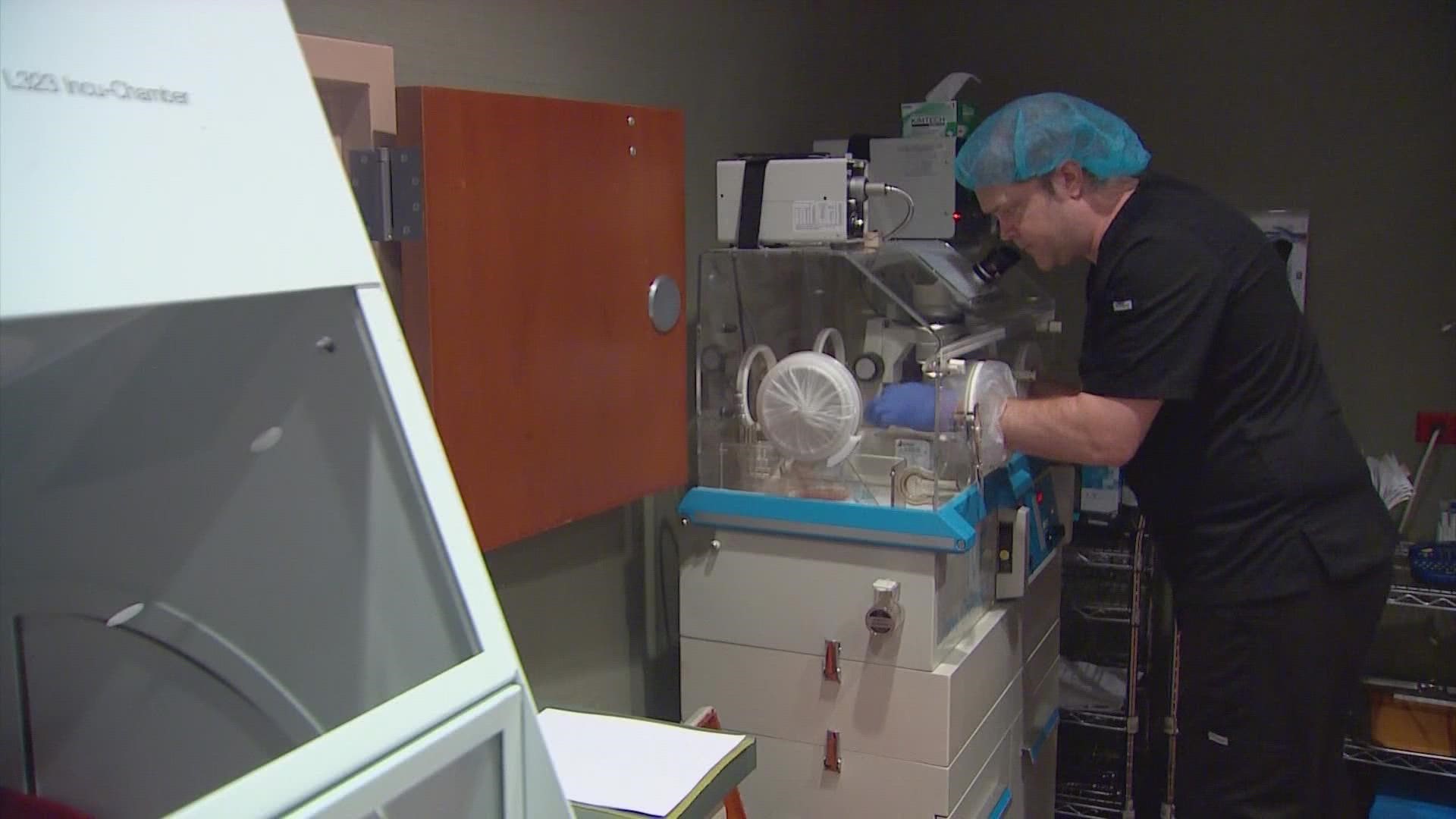DALLAS — In Texas, overturning Roe vs. Wade will trigger a state law that says life begins at conception. That’s raising questions for fertility doctors who work with fertilized eggs to help their patients get pregnant.
“I would say today’s historic decision has understandably raised concerns among our patients undergoing fertility care,” said Dr. Kathy Doody with the Care Fertility Clinic.
In fertility care, doctors create embryos outside the womb. Some experts says Texas' "trigger law" may create uncertainty about what can and cannot be done with those embryos.
Professor Seema Mohapatra is an expert in health law and bioethics at Southern Methodist University (SMU).
“There is kind of a gray area for what a fertility doctor can do in terms of somebody that really wants to have a child. And it might actually reduce the chances that they can have the child that they really wanted because of these laws related to abortion,” she said.
Mohapatra anticipates the Supreme Court's decision could lead to new state laws that restrict fertility care by declaring that an embryo is a person and has rights.
“Now that the Supreme Court has kind of left the door open for states to legislate, I expect more states to go forward with personhood restrictions,” she said.
But, for now, Doody is projecting the message that it’s business as usual.
"As a physician I feel it’s important for us to reassure our patients, IVF remains legal in Texas unless a law is passed that specifically states otherwise," she said.

